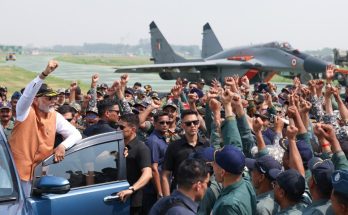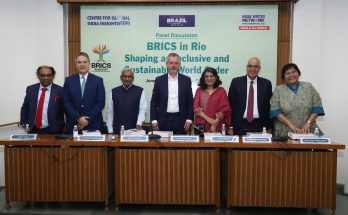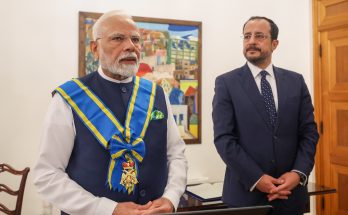
The first meeting of G20 foreign ministers under India’s G20 presidency ended with a striking convergence on major global issues ranging from climate change and sustainable development to terrorism, but a consensus on the Ukraine war proved to be elusive amid a narrative war between Russia and the West.
India’s External Affairs Minister S. Jaishankar crystallized the essence of the meeting when he said “on the bulk of issues which concern the global south, there was a considerable meeting of minds that has been captured by outcome document.” “There were a large number of issues on which there was agreement like strengthening multilateralism, promoting food and energy security, climate change, gender issues, counter terror,” he told journalists at Sushma Swaraj Bahavan, which hosts India’s G20 Secretariat. in New Delhi.
“In terms of the outcome document, you will see that there was almost 90% agreement. Just on two paras we were not able to get everybody on the same page – or para,” he added.
Ukraine Divergences: Blinken blames Russia, China
Mr Jaishankar candidly admitted that due “divergences” among G20 members on the question of the Russia-Ukraine war a joint statement could not be issued after the meeting of foreign ministers.
US Secretary of State Antony Blinken blamed Russia and China for derailing the Ukraine consensus. “In the particular case of Russia’s war of aggression against Ukraine, you have virtually everyone in the G20 signing on to what had already been stated [at the last G20 Summit] in Bali and the two holdouts, of course, were Russia and China,” he told a separate media briefing.

Mr Blinken stressed that in the context of the need for multilateral reforms that there were “two countries in particular” at the UN Security Council that “tend to block the attempted actions of the council to address some of the most urgent global concerns”.
Setting a positive tone, Mr Blinken said that there was “broad consensus across the G20” to work and act together on issues of global concern. “Prime Minister Modi said today that we should not allow issues that we cannot resolve together to come in the way of those that we can and I think what we saw today is a very good reflection of what the Prime Minister said – that is work and agreement on a whole series of lines of effort that the G20 will take to address the issues of greatest concern to people around the world,” he said.
Russian Foreign Minister Sergei Lavrov blamed Western representatives for derailing the meeting while trying to scapegoat Russia for their own failings. “I want to apologise to the Indian presidency and to our colleagues from countries of the Global South for the obscene behaviour of some Western delegations, which have turned the G20’s agenda into a farce,” Mr Lavrov was quoted as saying by TASS news agency.
Author Profile

- Manish Chand is Founder-CEO and Editor-in-Chief of India Writes Network (www.indiawrites.org) and India and World, a pioneering magazine focused on international affairs. He is CEO/Director of TGII Media Private Limited, an India-based media, publishing, research and consultancy company.
Latest entries
 India and the WorldJune 16, 2025Amid Pakistan-Turkey nexus, Cyprus joins India against cross-border terror
India and the WorldJune 16, 2025Amid Pakistan-Turkey nexus, Cyprus joins India against cross-border terror India and the WorldMay 8, 2025Pahalgam payback: India exposes Pakistan’s lies, misuse of religious sites for training terrorists
India and the WorldMay 8, 2025Pahalgam payback: India exposes Pakistan’s lies, misuse of religious sites for training terrorists India and the WorldMay 3, 2025IMEEC provides a democratic alternative to BRI: Italy’s former foreign minister (Interview)
India and the WorldMay 3, 2025IMEEC provides a democratic alternative to BRI: Italy’s former foreign minister (Interview) India and the WorldApril 21, 20253T Template for India-US Mega Partnership
India and the WorldApril 21, 20253T Template for India-US Mega Partnership







